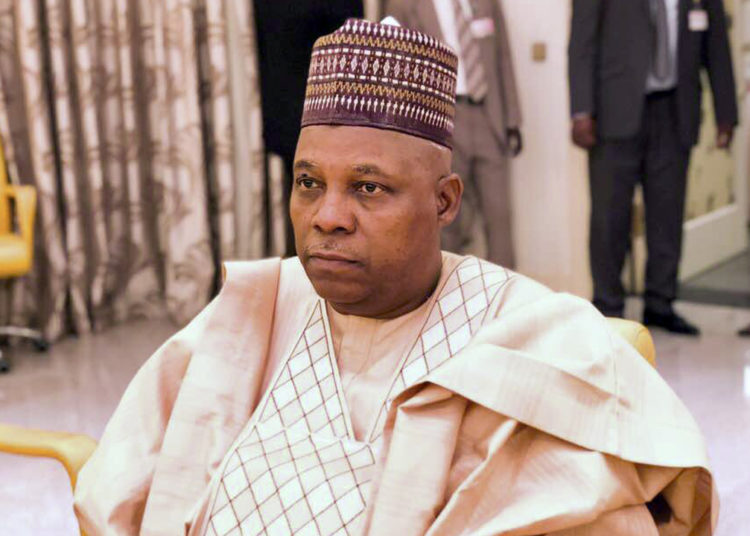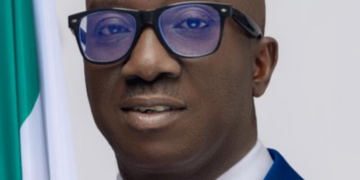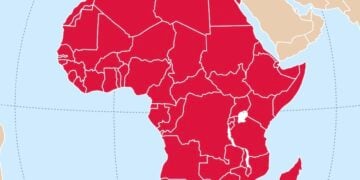When it comes to commenting on political controversies, I am typically a hesitant participant. However, the current discussion around the Nigerian Vice President, Kashim Shettima, has struck a personal chord with me, compelling me to take a more active role.
Vice President Kashim Shettima has recently come under fire for his remarks about the equitable credentials of the President of the 10th Senate in Nigeria.
Shettima, a prominent northern Muslim politician, was criticized for allegedly denigrating his Muslim faith and promoting religious bias in his comments.
However, a closer examination of his statement and context reveals a different picture, one that is more nuanced and fair-minded.
Firstly, it is essential to note that Shettima’s statement was not made in a vacuum; instead, it was a response to the possibility and necessity of a southern Christian becoming the Senate President of the newly constituted 10th National Assembly. This position has become a non-negotiable right of the southern Christians, as per the default created after the 2023 presidential election.
In that context, Shettima said he would prefer a southern Christian, even if less qualified, than a northern Muslim perceived as more competent.
Of course this statement may sound controversial, but it is not without some merit. Shettima’s point was that there should be some measure of balance and inclusiveness in the distribution of political power in Nigeria. He argued that it would be unfair for the Senate presidency, which is one of the top positions in the country – number two in the line of succession, to always go to the Christians in the South, especially as the President and his VP share the same faith.
In that sense, his statement was not meant to denigrate his Muslim faith but to promote fairness and diversity in political representation.
Moreover, it is worth noting that Shettima himself is a devout Muslim who has always respected his religion and its teachings. He has been a champion of education, healthcare, and humanitarian causes in his home state of Borno, ravaged by the Boko Haram insurgency and other forms of violence. He has also been a vocal advocate of peace, tolerance, and cooperation among different religious and ethnic groups in Nigeria. Therefore, it is improbable that someone of his calibre and stature would throw caution to the wind to make a statement that is deliberately offensive or divisive. He is too smart for that.
Some critics may argue that Shettima’s statement is still problematic because it perpetuates the notion of religious and regional quotas in politics. However, this argument misses the point that quotas are not necessarily discriminatory or unconstitutional if they promote diversity and inclusiveness and do not result in the exclusion and marginalisation of any group.
Some may argue that fairness should have been factored into the selection process for the presidential and vice-presidential flag bearers of his party. However, it is a fact that politicians are free to explore every legal avenue to win elections, including running with a ticket based on their shared faith. During campaigns, candidates are free to do what they need to do to win votes because if they lose, they bear the heavy burden of ridicule and regret alone. After the elections, the actions of the newly elected public officials are strictly guided by the laws of the land. Personal interests are no longer permitted to influence their decisions. This is when the importance of fairness and balance, in line with the nation’s diversity, is emphasised. This was precisely what the President and Vice President were prioritising during the selection process for the third and fourth highest leadership positions in the country.
In light of these facts, it is fair to say that Shettima’s statement, which is not even controversial, was not malicious or ill-intentioned. He spoke within the context of fairness and diversity, and he did not mean to harm or insult anyone. Therefore, it is important for Nigerians, especially northerners who may feel aggrieved or offended by his statement, to avoid twisting things and feigning ignorance about his good intentions.
British-American author and motivational speaker Simon Sinek once said that “feigned ignorance is a hallmark of the manipulator, and the sign of a deceiver,” even as America’s philosopher and poet TF Hodge, cautioned that “feigning ignorance may protect the ego, but it never leads to enlightenment.” The political leaders in opposition from the North should avoid promoting division or hatred by being disingenuous.
Nigerians, especially northerners, should avoid twisting Senator Shettima’s words and ignoring his good intentions. Instead, they should engage in constructive dialogue and debate the best ways to promote unity, progress, and justice in Nigeria.
Furthermore, it is essential to note that Shettima’s statement should not be seen in isolation from the broader political context of Nigeria. The country has been grappling with many challenges, including insecurity, corruption, economic inequality, and political instability. These challenges have often been exacerbated by ethnic and religious tensions, which have fueled violence and disunity. In that sense, Shettima’s call for balance and political representation should be seen as a positive step towards addressing these challenges and fostering national cohesion and development.
It is also worth noting that VP Shettima’s statement is not unique or unprecedented in Nigerian politics.
Many politicians and leaders have expressed similar views and preferences based on their interests, ideologies, and constituencies. However, what sets Shettima apart is his sincerity, integrity, and commitment to public service. He has proven himself to be a capable and compassionate leader who is dedicated to loyalty and supporting his principal, President Bola Ahmed Tinubu, in improving the lives of ordinary Nigerians, regardless of their religion, ethnicity, or social status. Nigerians, especially northerners, should give them the benefit of the doubt and avoid jumping to conclusions or making hasty judgments that promise nothing but division.
– Abdulkareem writes from Maiduguri, Borno state.











